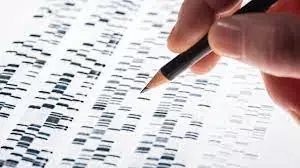- Home
- Medical news & Guidelines
- Anesthesiology
- Cardiology and CTVS
- Critical Care
- Dentistry
- Dermatology
- Diabetes and Endocrinology
- ENT
- Gastroenterology
- Medicine
- Nephrology
- Neurology
- Obstretics-Gynaecology
- Oncology
- Ophthalmology
- Orthopaedics
- Pediatrics-Neonatology
- Psychiatry
- Pulmonology
- Radiology
- Surgery
- Urology
- Laboratory Medicine
- Diet
- Nursing
- Paramedical
- Physiotherapy
- Health news
- Fact Check
- Bone Health Fact Check
- Brain Health Fact Check
- Cancer Related Fact Check
- Child Care Fact Check
- Dental and oral health fact check
- Diabetes and metabolic health fact check
- Diet and Nutrition Fact Check
- Eye and ENT Care Fact Check
- Fitness fact check
- Gut health fact check
- Heart health fact check
- Kidney health fact check
- Medical education fact check
- Men's health fact check
- Respiratory fact check
- Skin and hair care fact check
- Vaccine and Immunization fact check
- Women's health fact check
- AYUSH
- State News
- Andaman and Nicobar Islands
- Andhra Pradesh
- Arunachal Pradesh
- Assam
- Bihar
- Chandigarh
- Chattisgarh
- Dadra and Nagar Haveli
- Daman and Diu
- Delhi
- Goa
- Gujarat
- Haryana
- Himachal Pradesh
- Jammu & Kashmir
- Jharkhand
- Karnataka
- Kerala
- Ladakh
- Lakshadweep
- Madhya Pradesh
- Maharashtra
- Manipur
- Meghalaya
- Mizoram
- Nagaland
- Odisha
- Puducherry
- Punjab
- Rajasthan
- Sikkim
- Tamil Nadu
- Telangana
- Tripura
- Uttar Pradesh
- Uttrakhand
- West Bengal
- Medical Education
- Industry
Genetic single-nucleotide polymorphisms variants may be developed as screening tools for dental caries in future

Genetic single-nucleotide polymorphisms variants may be developed as screening tools for dental caries in future suggests a new study published in the Journal of Dentistry.
A representative sample of all 5,914 births from the 1982 Pelotas birth cohort study was prospectively investigated. Dental caries trajectory across the life course was assessed at 15(n = 888), 24(n = 720), and 31 years old(n = 539). Group-based trajectory modeling was used to identify distinct subgroups of individuals whose caries measurements followed a similar pattern over time. Genetic material was collected, and individuals were genotyped [rs4970957(TUFT1), rs1711437(MMP20), rs1784418(MMP20), rs2252070(MMP13), rs243847(MMP2), rs2303466(DLX3), rs11656951(DLX3), rs7501477(TIMP2), rs388286(BMP7), and rs5997096(TFIP11)]. Analyzes were performed for allele and genotype using logistic regression and generalized multifactor dimensionality reduction for epistatic interactions.
Results
The analyses included 678 individuals, those with allele C, genotype CC in the additive effect, and the genotype TC/CC in dominant effect on the rs243847(MMP2) were associated with low caries trajectory.
Individuals with the allele T and the genotype TC/CC in dominant effect on the rs5997096(TFIP11) were associated with low caries trajectory. Positive epistatic interactions were observed involving two and three loci and high caries trajectory.
Some SNPs present in the genes of tooth mineral tissues were associated with caries trajectory and epistatic interactions increasing the network of SNPs involved in individual caries experience. Single nucleotide polymorphisms in the pathway of tooth mineral tissues genes may contribute significantly to the individual caries experience across the life course.
Reference:
Luiz Alexandre Chisini, Francine da costa Santos, Rodrigo Varella de Carvalho, Bernardo Lessa Horta, Luciana Tovo-Rodrigues, Flávio Fernando Demarco, Marcos Britto Correa,
Impact of tooth mineral tissues genes on dental caries: A birth-cohort study,
Journal of Dentistry, Volume 133, 2023, 104505, ISSN 0300-5712. https://doi.org/10.1016/j.jdent.2023.104505.
(https://www.sciencedirect.com/science/article/pii/S030057122300091X)
Keywords:
Genetic, single-nucleotide, polymorphisms, variants, developed, screening tools, dental caries, future, Luiz Alexandre Chisini, Francine da costa Santos, Rodrigo Varella de Carvalho, Bernardo Lessa Horta, Luciana Tovo-Rodrigues, Flávio Fernando Demarco, Marcos Britto Correa, Journal of Dentistry
Dr. Shravani Dali has completed her BDS from Pravara institute of medical sciences, loni. Following which she extensively worked in the healthcare sector for 2+ years. She has been actively involved in writing blogs in field of health and wellness. Currently she is pursuing her Masters of public health-health administration from Tata institute of social sciences. She can be contacted at editorial@medicaldialogues.in.
Dr Kamal Kant Kohli-MBBS, DTCD- a chest specialist with more than 30 years of practice and a flair for writing clinical articles, Dr Kamal Kant Kohli joined Medical Dialogues as a Chief Editor of Medical News. Besides writing articles, as an editor, he proofreads and verifies all the medical content published on Medical Dialogues including those coming from journals, studies,medical conferences,guidelines etc. Email: drkohli@medicaldialogues.in. Contact no. 011-43720751


